Understanding the Role of Compliance in Healthcare Revenue Cycle Management
Healthcare compliance isn’t just a legal obligation; it’s an essential component that ensures financial and operational stability in a highly regulated industry. For healthcare providers, maintaining compliance goes beyond avoiding penalties—it is critical to safeguarding patient trust, enhancing operational efficiency, and ensuring accurate revenue management.
In this article, we’ll dive deeper into healthcare compliance, focusing on its impact on financial decision-makers in healthcare organizations, such as Chief Financial Officers (CFOs) and directors of revenue cycle management.
What is Healthcare Compliance?
Healthcare compliance encompasses a broad set of regulations, standards, and best practices that govern every facet of healthcare operations—from patient safety and data security to billing practices. It requires adherence to laws at both the federal and state levels, as well as industry-specific regulations, which can evolve rapidly. For healthcare financial leaders, the need for robust compliance mechanisms is central to minimizing operational risk and maximizing financial efficiency.
Beyond Basic Compliance: Managing Complexities for Financial Stability
For executives, compliance isn’t just a checkbox but a strategic initiative that can affect the bottom line. Non-compliance can lead to costly audits, penalties, and legal ramifications, all of which divert resources from patient care and negatively affect profitability. In contrast, a strong compliance culture fosters financial stability, reduces risk, and improves an organization’s reputation among payers, insurers, and regulatory bodies.
How Does Healthcare Compliance Impact Financial Operations?
Reimbursement and Revenue Cycle Optimization
Compliance plays a key role in revenue cycle management, particularly in ensuring that billing and reimbursement processes are accurate and timely. By maintaining accurate coding practices and adhering to payer regulations, healthcare organizations can reduce claim denials, shorten reimbursement cycles, and avoid revenue leakage. Non-compliance in this area, on the other hand, can lead to claims being denied, delayed, or underpaid—directly affecting cash flow.
Key Areas of Healthcare Compliance
Here are three major compliance areas that directly impact financial management within healthcare organizations:
1. Patient Safety Compliance
While patient safety is primarily a clinical concern, it has financial implications as well. Non-compliance with safety regulations can lead to malpractice lawsuits, which not only drain financial resources but also damage the organization’s reputation. In addition, Medicare and Medicaid reimbursement rates are increasingly tied to patient safety metrics through value-based care programs, making compliance critical to securing full payment from federal payers.
2. Data Security and HIPAA Compliance
HIPAA compliance is crucial to avoiding data breaches, which can result in hefty fines, legal liabilities, and loss of patient trust. For healthcare CFOs, the cost of a data breach can be catastrophic, with penalties reaching millions of dollars and causing long-term reputational damage. Proactively managing data privacy, particularly with the rise of telemedicine and electronic health records (EHR), ensures that healthcare facilities avoid costly breaches and maintain smooth operations.
3. Billing, Coding, and Reimbursement Compliance
Accurate billing and coding are essential to maintaining financial health. Incorrect coding can lead to claim denials and delays, triggering audits that consume both time and financial resources. Ensuring compliance with coding standards (such as ICD-10 and CPT) not only prevents regulatory penalties but also streamlines reimbursement from third-party payers, improving cash flow and reducing accounts receivable days.
Essential Healthcare Compliance Regulations to Know
The No Surprises Act (2021)
The No Surprises Act addresses the issue of unexpected out-of-network billing, protecting patients from exorbitant charges while creating a complex compliance landscape for healthcare providers. Compliance with this act requires careful navigation of the Independent Dispute Resolution (IDR) process and the management of Good Faith Estimates (GFEs), both of which directly affect the hospital’s revenue stream. Failure to comply can lead to financial penalties and a loss of patient trust, particularly in a competitive marketplace.
HIPAA (Health Insurance Portability and Accountability Act)
HIPAA compliance is non-negotiable, with significant financial and legal risks tied to violations. For revenue cycle management, HIPAA affects not only the security of patient information but also how that data is shared during billing processes. Compliance in this area ensures that data flows between providers, payers, and other parties remain secure and uninterrupted.
Affordable Care Act (ACA)
The ACA’s impact on healthcare organizations goes beyond expanding coverage. It has introduced value-based purchasing models that link reimbursement to the quality of care provided, rather than the quantity. This shift requires organizations to invest in compliance processes that monitor performance metrics related to patient outcomes, which can significantly affect reimbursement rates.
501(r)
The 501(r) provisions of the Internal Revenue Code are crucial for non-profit healthcare organizations, outlining requirements to maintain tax-exempt status. These regulations mandate community health needs assessments, financial assistance policies, and charge limitations based on patients’ ability to pay. Adhering to 501(r) ensures transparency and promotes equitable access to healthcare, especially for low-income individuals. Compliance safeguards tax-exempt status and reinforces the organization’s commitment to serving the community effectively and ethically.
Patient Protection and Affordable Care Act (PPACA)
The Patient Protection and Affordable Care Act (PPACA) promotes access to quality healthcare and protects patients’ rights by mandating essential health benefits and prohibiting discrimination. Compliance helps healthcare providers avoid penalties and fosters a more equitable system, enhancing patient trust and satisfaction. Adhering to PPACA provisions is essential for maintaining operational integrity and effective service delivery.
Emergency Medical Treatment and Labor Act (EMTALA)
The Emergency Medical Treatment and Labor Act (EMTALA) ensures that all patients receive necessary emergency medical care, regardless of their ability to pay. By requiring hospitals to perform medical screenings and stabilize patients before any transfer or discharge, EMTALA protects public health and promotes ethical treatment practices. Compliance with EMTALA helps prevent patient discrimination and ensures that emergency departments provide equitable care, thereby fostering trust in the healthcare system and safeguarding against legal liabilities.
Medicare and Medicaid Regulations
Medicare and Medicaid regulations are vital for ensuring that healthcare providers deliver high-quality services while receiving appropriate reimbursement. These regulations set standards for billing, service delivery, and reporting, which help maintain accountability and transparency in the healthcare system. Compliance with Medicare and Medicaid requirements not only protects against fraud and abuse but also ensures that vulnerable populations receive the care they need. Adhering to these regulations fosters trust in the healthcare delivery system and contributes to overall public health outcomes.
The Federal Anti-Kickback Statute
The Federal Anti-Kickback Statute (AKS) is essential for maintaining integrity in healthcare by prohibiting remuneration for referrals of federally covered services. This regulation prevents fraud and ensures that medical decisions prioritize patient needs over financial incentives. Compliance safeguards providers from legal penalties and promotes ethical practices, fostering trust in the healthcare system.
Strategic Compliance: Enhancing Revenue and Patient Trust
For financial leaders, compliance is more than risk management—it’s a way to enhance operational efficiency, streamline the revenue cycle, and build trust with patients and payers. By aligning compliance efforts with financial goals, healthcare organizations can reduce operational inefficiencies, increase payer confidence, and ultimately improve the bottom line.
Key Takeaways for Healthcare CFOs and Revenue Cycle Leaders:
- Focus on Integration: Ensure compliance protocols are fully integrated into the revenue cycle to reduce claim denials and speed up reimbursement.
- Invest in Technology: Implement robust systems that streamline compliance efforts, including billing and coding software that updates in real-time with regulatory changes.
- Monitor Metrics: Track compliance-related metrics such as coding accuracy and patient safety performance, as these are increasingly tied to financial incentives under value-based care programs.
Conclusion
Maintaining compliance in the healthcare industry is no small feat, but for financial leaders, it offers a critical opportunity to optimize operations and protect the organization’s financial health. Whether it’s ensuring adherence to patient safety standards or implementing robust billing practices, compliance plays a vital role in the overall sustainability and success of healthcare facilities.
If your organization is struggling to stay compliant in this rapidly changing regulatory landscape, reach out to our team of compliance experts for a consultation. Marcam Associate is here to help with all of your RCM needs!
